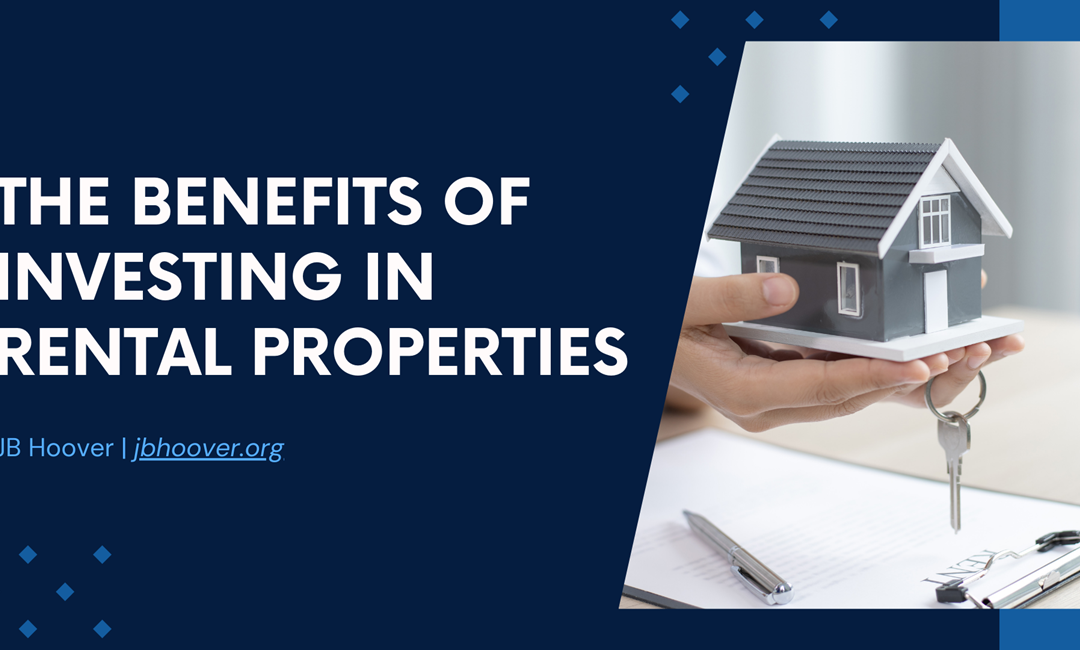
The Benefits of Investing in Rental Properties
Investing in rental properties can be a lucrative venture with numerous benefits for investors seeking to build wealth and generate passive income. Rental properties offer a variety of advantages that make them an attractive investment option, including the potential for long-term appreciation, steady cash flow, tax advantages, and diversification of investment portfolios.
One of the primary benefits of investing in rental properties is the potential for long-term asset value appreciation. While real estate markets may experience fluctuations in the short term, historically, property values tend to appreciate over time, especially in desirable locations with strong job growth and economic fundamentals. Investors can build wealth through capital appreciation and equity accumulation by investing in rental properties in high-demand markets and holding onto them for the long term.
Moreover, rental properties offer the opportunity to generate steady cash flow through rental income. Unlike other types of investments, such as stocks or bonds, rental properties provide a predictable and consistent income stream, which can help investors cover expenses, pay down mortgages, and build wealth over time. Additionally, rental income can provide a hedge against inflation, as rents tend to increase over time in line with inflationary pressures, allowing investors to maintain purchasing power and preserve the value of their investments.
Furthermore, rental properties offer tax advantages that can help investors maximize their returns and reduce their tax liabilities. Rental income is generally taxed at lower rates than earned income, and investors may be able to deduct expenses such as mortgage interest, property taxes, insurance, maintenance, and depreciation from their rental income, reducing their taxable income and increasing their cash flow. Additionally, investors may be eligible for tax benefits such as the mortgage interest deduction, the depreciation deduction, and the 1031 exchange, which allows them to defer taxes on capital gains by reinvesting proceeds from selling one property into another.
Additionally, investing in rental properties can provide diversification benefits for investors looking to build a balanced and resilient investment portfolio. Real estate investments have historically exhibited low correlation with other asset classes, such as stocks and bonds, meaning they tend to perform differently under different market conditions. By adding rental properties to their investment portfolios, investors can reduce overall portfolio risk and enhance risk-adjusted returns, as the income generated from rental properties may help offset losses from other investments during market downturns.
Moreover, rental properties offer investors the opportunity to leverage their investments and amplify returns through financing. With mortgage financing, investors can purchase rental properties with a relatively small down payment and finance the remainder of the purchase price with a mortgage loan. Using leverage, investors can increase their potential returns on investment by controlling a larger asset with a smaller amount of capital. Additionally, mortgage financing allows investors to take advantage of low-interest rates and favorable financing terms, further enhancing their cash flow and returns on investment.
In conclusion, investing in rental properties offers a variety of benefits for investors seeking to build wealth and generate passive income. From the potential for long-term appreciation and steady cash flow to tax advantages and diversification benefits, rental properties can be valuable to investment portfolios. By understanding the benefits of investing in rental properties and implementing sound investment strategies, investors can achieve their financial goals and build wealth over time through real estate investing.

Navigating a Seller’s Market: Tips for Buyers and Sellers
In a seller’s market, demand for homes outweighs the supply, giving sellers the upper hand in negotiations and often resulting in competitive bidding wars among buyers. Navigating a seller’s market can be challenging for both buyers and sellers, but with the right strategies, both parties can achieve their goals and maximize their outcomes.
For sellers, a seller’s market presents an opportunity to sell their home quickly and for top dollar. To capitalize on the favorable market conditions, sellers should focus on maximizing their home’s appeal to potential buyers. This includes staging the home to showcase its best features, decluttering and depersonalizing the space to help buyers envision themselves living there, and making any necessary repairs or improvements to enhance its marketability. Additionally, pricing the home competitively from the outset can attract multiple offers and create a sense of urgency among buyers, driving up the final sale price.
Furthermore, sellers should be prepared to act quickly and decisively when offers come in. In a seller’s market, desirable properties can receive multiple offers within days of being listed, so sellers should be ready to review offers promptly and make timely decisions. Working with an experienced real estate agent who understands the local market and can provide guidance and support throughout the selling process can help sellers navigate the complexities of a seller’s market and achieve a successful sale.
For buyers, navigating a seller’s market requires patience, persistence, and flexibility. With limited inventory and high demand, finding the right home at the right price can be challenging. Buyers should be prepared to act quickly when a desirable property comes on the market, conducting thorough research and due diligence beforehand to ensure they are ready to make a competitive offer. Additionally, buyers should be open to exploring different neighborhoods and considering homes that may need some cosmetic updates or repairs, as this can expand their options and increase their chances of finding a suitable property.
Moreover, buyers should be pre-approved for a mortgage before they begin their home search. In a seller’s market, sellers are more likely to favor buyers who have been pre-approved for financing, as it demonstrates their ability to secure financing and close the deal quickly. Having a pre-approval letter in hand can also give buyers a competitive edge in multiple-offer situations, as it shows sellers that they are serious and financially qualified buyers.
Furthermore, buyers should be prepared to make a strong and competitive offer when they find a home they love. This may include offering above the asking price, waiving contingencies, or providing other incentives to make their offer more attractive to sellers. Working with a knowledgeable and experienced real estate agent who can help buyers navigate the competitive market and negotiate effectively can increase their chances of success.
In conclusion, navigating a seller’s market requires buyers and sellers to adopt different strategies to achieve their goals. Sellers should focus on maximizing their home’s appeal, pricing it competitively, and being prepared to act quickly when offers come in. Buyers, on the other hand, should be patient, persistent, and flexible, conducting thorough research, getting pre-approved for financing, and making strong and competitive offers when they find the right property. By following these tips, buyers and sellers can navigate a seller’s market with confidence and achieve successful outcomes.

Analyzing Trends: What’s Driving the Current Real Estate Market?
The real estate market is constantly evolving, influenced by various factors, from economic conditions and demographic shifts to changes in consumer preferences and government policies. Understanding the trends driving the current real estate market is essential for buyers, sellers, investors, and industry professionals to make informed decisions and navigate market conditions effectively.
One of the primary drivers of the current real estate market is low mortgage interest rates. Historically low interest rates, resulting from monetary policies aimed at stimulating economic growth, have made borrowing more affordable for homebuyers and investors alike. Lower interest rates translate into lower monthly mortgage payments, making homeownership more accessible and attractive to potential buyers. Additionally, low-interest rates incentivize investors to invest in real estate as an alternative to other asset classes, driving demand and pushing up property prices in many markets.
Moreover, demographic trends are shaping the dynamics of the current real estate market. The millennial generation, often referred to as Generation Y, is now entering the prime homebuying age, driving demand for starter homes, condominiums, and urban properties. Millennials, known for their preference for urban living, walkable neighborhoods, and access to amenities and public transportation, are reshaping the housing market by fueling demand for properties in urban centers and revitalizing urban neighborhoods. Additionally, the aging baby boomer generation is influencing the market by downsizing, relocating to retirement communities, or aging in place, creating opportunities in the senior housing and assisted living sectors.
Furthermore, changes in lifestyle and consumer preferences are driving shifts in the real estate market. The COVID-19 pandemic has accelerated trends such as remote work, virtual shopping, and the desire for larger homes with outdoor space. As more people work from home and prioritize health and wellness, there is increased demand for homes with home offices, outdoor living areas, and access to parks and green spaces. Additionally, the rise of e-commerce and online shopping has led to increased demand for industrial and logistics properties to support last-mile delivery and fulfillment operations.
Government policies and regulations also play a significant role in shaping the current real estate market. Fiscal stimulus measures, such as tax incentives for homebuyers and support for affordable housing initiatives, can stimulate demand and drive activity in the housing market. Conversely, changes in zoning regulations, building codes, and environmental policies can impact development costs, project timelines, and market dynamics, influencing supply and demand dynamics in the real estate market.
In conclusion, understanding the trends driving the current real estate market is essential for navigating market conditions and making informed decisions. Low mortgage interest rates, demographic shifts, changes in lifestyle and consumer preferences, and government policies are among the key factors shaping the dynamics of the real estate market. By staying informed and adapting to evolving market trends, buyers, sellers, investors, and industry professionals can capitalize on opportunities and mitigate risks in the dynamic and ever-changing real estate market.
About JB Hoover, Newport Beach
Based in Newport Beach, JB Hoover is the Founder and Principal of National Quality Construction in Tustin, Orange County, California. Prior to starting his own business, JB spent over ten years as Vice President of Construction at a Custom Boutique Homebuilder. JB mainly focuses on real estate rehabilitation, which consists of flipping foreclosed homes into dream houses for young couples or people buying their first home. Other than his passion for his professional endeavors, JB is also passionate about golf, travel, and cars.
As a student at Whittier College in Los Angeles, JB Hoover enjoyed cars so much that he used to flip and customize them to earn extra money. However, he found few cars that he loved too much to sell and decided to keep them instead. Today, JB’s car collection includes seven rare vehicles — some of which include a few Mercedes-AMG cars, which are modeled after racing cars and are known to be characterized by the company’s courage and passion in the car-making industry.
In fact, JB’s passion for cars is what inspired him to get into the construction and development business. He noticed one of his frequent buyers had a large collection of exotic vehicles, and questioned the buyer about their career. The buyer said he was a successful construction developer in the area, and built residential real estate for families and young couples. JB became fascinated by the business, and decided to pursue the same career path by earning a bachelor’s degree in business administration with a minor in real estate. He then combined his two passions of flipping cars and construction into a business that creates affordable homes for everyday buyers.
When JB Hoover of Newport Beach is not on the job, he enjoys traveling internationally. With four continents and dozens of countries visited under his belt, JB has truly experienced the different cultures, cuisines and different climates that he’s exposed to on his travels. He particularly enjoys Western Europe in countries like Germany, Italy and Switzerland.
In addition, JB Hoover enjoys golfing on several of the beautiful golf courses that overlook the Orange County skyline. As a player of over 20 years, JB is no longer the talented golfer he used to be, but that doesn’t stop him from enjoying time outside in the California sunshine and attempting to become a scratch golfer again. Inspired by watching golf on TV and observing his grandfather and great-grandfather play the sport, JB Hoover played golf in high school and college and hopes that he, too, can play the game well into his 90s as his grandfather and great-grandfather did.

